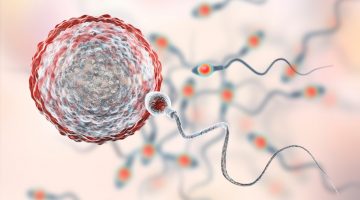Antimullerian Hormone (AMH) and Ovarian Reserve
AMH and What It Means:
The field of fertility studies is constantly evolving and advancing. In response to current research, we are happy to make Antimüllerian Hormone (AMH) testing available to our clients. This hormone has been found to be a good indicator of ovarian reserve (the number of follicles remaining) and predicts challenges during fertility treatment such as hyperstimulation or poor stimulation response. AMH levels do not greatly fluctuate during a woman’s monthly cycle and can, therefore, be tested at any point in time. All that is required for an AMH test is a simple blood test, resulting in a number indicating the level of Antimüllerian hormone present in the body. Researchers have found a few interesting relationships between AMH levels and fertility:
- When the level of AMH in the system decreases, so does ovarian reserve and fertility.
- Age, obesity, administration of chemotherapy or radiation, and surgical removal of one or both ovaries also decrease the level of AMH in the body.
- Polycystic Ovarian Syndrome (PCOS) increases the level of AMH in the body.
- Birth control pills, pregnancy, and the day of the cycle do not influence AMH.
Your Results:
After your simple blood test, you will receive a number indicating the amount of AMH within your body. A level less than 0.2-0.5 nd/mL is commonly associated with an increased chance of a canceled IVF cycle, poor response, and fewer eggs retrieved from the ovaries. Levels greater than 2.5 ng/mL are associated with greater egg production and a better potential for fertility. If your AMH is high (greater than 3.6 ng/mL), you may be at a higher risk for ovarian hyperstimulation.
If you’re interested in testing your AMH level, please feel free to ask one of our nurses at your next visit. We would be happy to further explain this test, its benefits and limitations.
If you have questions or comments relating to this post, please contact our office.




